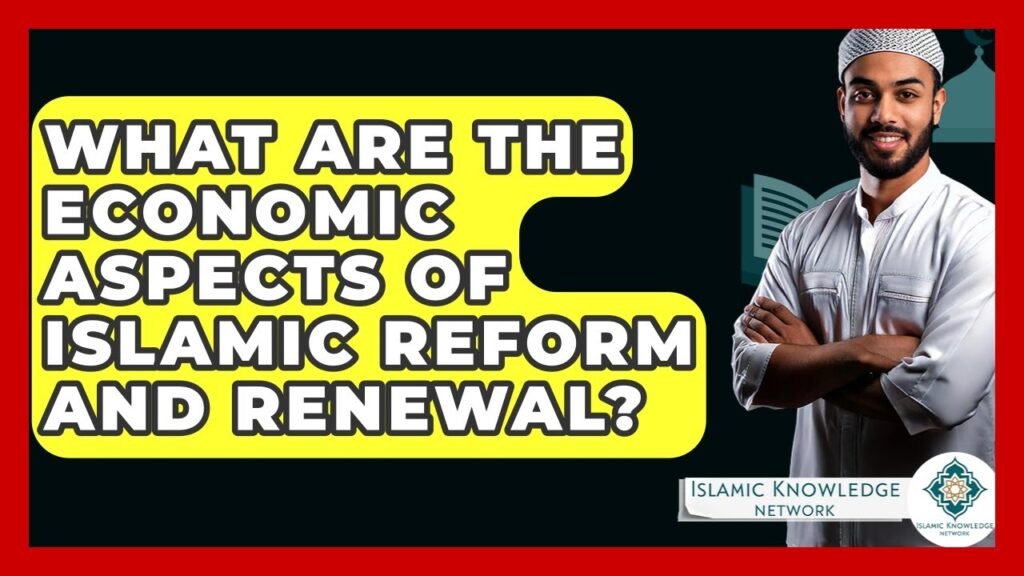Disclaimer:
The content published on this website is provided for general informational purposes only. Articles are generated with the assistance of artificial intelligence and are reviewed periodically; however, accuracy cannot be guaranteed in all cases. Readers are encouraged to verify important information from reliable and authoritative sources before relying on it. The website does not intend to mislead, and any errors found will be corrected when identified.
In recent years, the dialogue surrounding Islamic reform and renewal has gained significant momentum, with particular attention on its economic dimensions. These economic aspects not only influence the theoretical underpinnings of Islamic teachings but also shape real-world applications that impact communities globally. As we explore the intricate relationship between economic principles and Islamic reform, it becomes clear that a nuanced understanding can pave the way for sustainable development and social justice within Muslim societies.
At Airlink Hajj and Umrah, we recognize the importance of staying informed on various topics, including the latest updates on Hajj and Umrah. Our blog serves as a valuable resource for pilgrims seeking insights into religious practices, and we believe that understanding the economic aspects of Islamic reform can enhance the experience of millions. By merging traditional values with contemporary economic strategies, we can foster a more resilient community, poised to meet the challenges of today’s world. Join us in delving into these critical discussions, as we navigate the intersections of faith, economics, and community well-being.
What Are the Economic Aspects of Islamic Reform and Renewal?
Islamic reform and renewal encompass a variety of economic dimensions aimed at fostering sustainable growth and social justice within Muslim communities. One significant aspect is the promotion of ethical finance, such as microfinance and Islamic banking. These services help individuals and small businesses thrive without falling into the traps of interest—an essential prohibition in Islam. By aligning financial practices with Islamic principles, these reforms not only enhance economic viability but also promote social equity.
Another fundamental economic aspect is the emphasis on zakat (charitable giving) and waqf (endowment). These mechanisms mobilize resources for community development and poverty alleviation, ensuring that wealth circulates within society. Renewed focus on these practices can pave the way for robust social welfare systems, ultimately contributing to a more equitable economy.
Moreover, Islamic reform encourages entrepreneurship and innovation, leading to job creation. By emphasizing sustainable practices, reform movements push for eco-friendly business models that benefit both the economy and the environment.
For those planning their Hajj and Umrah journeys, our blog at Airlink Hajj and Umrah keeps you updated on the latest economic developments that can influence your travel and experiences. Stay informed as you embark on your spiritual journey!
FAQ on What Are the Economic Aspects of Islamic Reform and Renewal?
FAQs: Economic Aspects of Islamic Reform and Renewal
1. What are the primary economic goals of Islamic reform and renewal?
The primary economic goals include promoting social justice, enhancing economic equality, encouraging sustainable development, and aligning financial practices with Islamic ethical principles.
2. How does Islamic finance differ from conventional finance in the context of reform?
Islamic finance prohibits interest (riba) and promotes risk-sharing, ethical investing, and asset-backed financing, aiming to create a more equitable economic system in line with Islamic teachings.
3. What role do social enterprises play in Islamic economic reform?
Social enterprises are vital, as they blend profit-making with social impact, fostering community development and adhering to Islamic values of charity (zakat) and social responsibility.
4. How can Islamic teachings contribute to sustainable economic practices?
Islam emphasizes stewardship (khalifah) of the earth, encouraging practices that ensure environmental protection and resource conservation, which aligns with global sustainable development goals.
5. What challenges do Islamic economies face in implementing reform and renewal?
Challenges include resistance from traditional economic structures, lack of understanding of Islamic economic principles, regulatory barriers, and the need for greater integration of contemporary economic theories with Islamic teachings.
Mushu, an experienced Saudi Arabia traveler and writer, shares insightful tips and spiritual reflections to enhance Hajj and Umrah journeys for fellow pilgrims. He has been to Makkah and Madina from 2016 to 2023 many times and his posts will reflect this.







